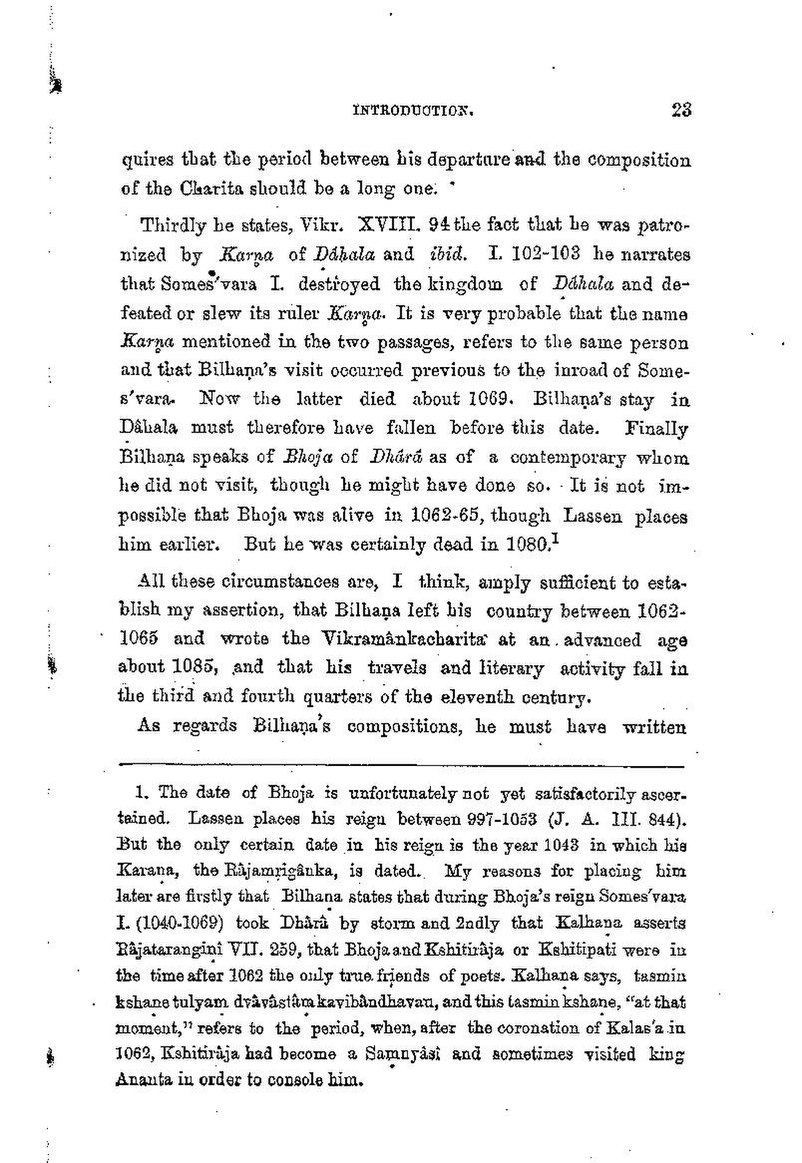INTRODUCTION.
23
quires that the period between his departure and the composition
of the Charita should be a long one.
.
Thirdly be states, Vikr. XVIII. 94 the fact that he was patro-
nized by Karna of Dáhala and ibid. I. 102-103 he narrates
that Somes'vara I. destroyed the kingdom of Dáhala and de-
feated or slew its ruler Karna. It is very probable that the name
Karna mentioned in the two passages, refers to the same person
and that Bilbana's visit occurred previous to the inroad of Some-
s'vara. Now the latter died about 1069. Bilhana's stay in
Dâhala must therefore have fallen before this date. Finally
Bilhana speaks of Bhoja of Dhárd as of a contemporary whom
he did not visit, though he might have done so. It is not im-
possible that Bhoja was alive in 1062-65, though Lassen places
him earlier. But he was certainly dead in 1080.¹
All these circumstances are, I think, amply sufficient to esta-
blish my assertion, that Bilhapa left his country between 1062-
1065 and wrote the Vikramânkacharita at an advanced age
about 1085, and that his travels and literary activity fall in
the third and fourth quarters of the eleventh century.
As regards Bilhana's compositions, he must have written
1. The date of Bhoja is unfortunately not yet satisfactorily ascer-
tained. Lassen places his reign between 997-1053 (J. A. III. 844).
But the only certain date in his reign is the year 1043 in which his
Karana, the Rajamrigânka, is dated. My reasons for placing him
later are firstly that Bilhana states that during Bhoja's reign Somes vara
I. (1040-1069) took Dharà by storm and 2ndly that Kalhana asserts
Rajatarangini VII. 259, that Bhoja and Kshitiraja or Kshitipati were in
the time after 1062 the only true friends of poets. Kalhana says, tasmin
kshane tulyam dvàvástâm kavibândhavan, and this tasmin kshane, "at that
moment," refers to the period, when, after the coronation of Kalas'a in
1062, Kshitiraja had become a Samnyást and sometimes visited king
Ananta in order to console him.
पृष्ठम्:विक्रमाङ्कदेवचरितम् - बिल्हण.pdf/२७
एतत् पृष्ठम् अपरिष्कृतम् अस्ति

